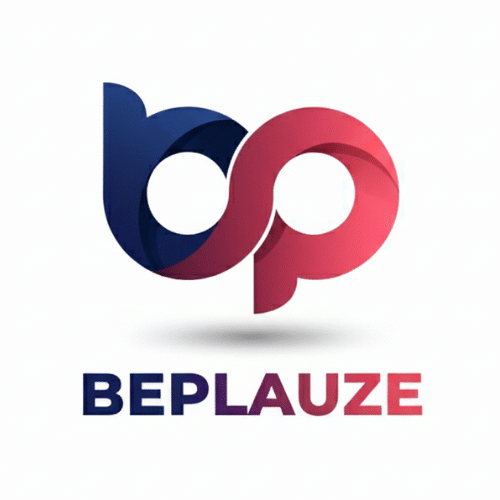Did you know that over 40% of small businesses face a cybersecurity threat each year, often due to simple, preventable mistakes? If you’re new to the world of websites, terms like “web hosting,” “SSL certificates,” and “domain registration” can feel like a foreign language. That’s where educational platforms can help. You might have come across zryly.com internet in your search for answers, and if you’re asking what it is, you’re in the right place.
Think of this article as your friendly guide. We’re not here to sell you anything. Instead, we’ll treat zryly.com as an example of an informational platform that offers guidance on internet, hosting, and security topics. More importantly, we’ll arm you with the knowledge to verify any online service, so you can browse and buy with confidence.
For anyone just starting out, a website like zryly.com presents itself as a resource. Its content appears aimed at demystifying the technical side of the internet. Let’s break down the core topics it likely covers, which are essential for every website owner to understand:
- Web Hosting Explained: This is the “land” where your website lives. Just like you need a physical plot for a house, your website’s files (text, images, code) need a computer server that’s always on and connected to the internet. Hosting companies provide this space.
- Domains Made Simple: Your domain is your website’s address (e.g.,
yourbusiness.com). It’s what people type into their browser to find you. Registering a domain is like claiming that address so no one else can use it. - Security Basics: This includes tools like SSL certificates, which create a secure, encrypted connection between a visitor’s browser and your website. You see it as the little padlock in the address bar. It’s crucial for protecting user data.
These topics are the bedrock of a solid online presence. An educational site simplifies them, but the critical next step is always to verify.
Before you rely on information or consider purchasing a service from any company—whether it’s zryly.com or any other—you need to do your homework. Don’t just take their word for it. Here’s your actionable checklist.
Step 1: Perform a WHOIS/ICANN Lookup
This is your first stop for transparency. A WHOIS lookup is like checking the public property records for a domain.
- How to do it: Go to a reputable WHOIS lookup service (like whois.icann.org or many others).
- What to look for: Enter the domain name (e.g.,
zryly.com). The results will show you who registered the domain and when, and their contact information. If this data is hidden by a privacy service, that’s common, but a complete lack of any transparent history can be a yellow flag.
Step 2: Check for a Valid SSL Certificate
This confirms that your connection to the site is secure.
- How to do it: Look for the padlock icon 🔒 to the left of the website’s URL in your browser bar. Click on it. It should say “Connection is secure” and the certificate should be issued to the same domain you’re visiting (e.g.,
zryly.com). If you see a “Not Secure” warning, do not input any personal information.
Step 3: Dive into Independent Reviews
Don’t just read the testimonials on the company’s own site. Seek out unbiased opinions.
- Where to look: Search for the company name on platforms like Trustpilot, SiteJabber, or even Reddit. Look for patterns. Are there repeated complaints about customer service or hidden fees? Are the positive reviews detailed and genuine, or do they look generic?
Step 4: Analyze the Content’s Accuracy and Depth
An educational platform’s value is in its content. Ask yourself:
- Is the information up-to-date? (e.g., are they talking about current best practices?)
- Is it overly simplistic, or does it provide real, actionable value?
- Does the content seem designed purely to sell you something, or to genuinely inform?
When you’re eager to get your website online, it’s easy to rush. Here are pitfalls to watch for:
- Choosing Price Over Everything: The cheapest hosting option often comes with slow speeds and terrible support. Your website’s performance affects your reputation.
- Ignoring Security Fundamentals: Thinking “my site is too small to be hacked” is a huge risk. Always ensure your hosting includes basic security features and an SSL certificate.
- Not Reading the Fine Print: Look for renewal prices, not just the introductory offer. A cheap first-year price can skyrocket upon renewal.
- Trusting Without Verifying: This is the biggest one. Assuming a website is trustworthy because it looks professional is a common error. Always use the verification steps we outlined above.
The internet is a powerful tool, and understanding its infrastructure is the first step to using it effectively. Whether you’re researching on zryly.com or any other site, be a savvy consumer.
Your 3 Key Takeaways:
- Knowledge is Power: Understanding hosting, domains, and security makes you a more informed user.
- Verification is Non-Negotiable: Always use WHOIS, SSL checks, and independent reviews before engaging with an online service.
- Start Simple, But Start Secure: Prioritize security and reliability over the absolute lowest price.
What’s the first thing you’ll check the next time you consider an online service?
You May Also Like: Understanding OFC Meaning in Digital Communication
Is zryly.com a legitimate company?
“Legitimacy” can mean different things. It operates a live website. However, its legitimacy as a service provider should be verified by you using the steps above (WHOIS lookup, SSL check, independent reviews) before any purchase.
What is web hosting in simple terms?
Imagine web hosting as renting a plot of land to build a house. The host provides the space (server) where all your website’s files and data “live” so others can visit it online.
Why is an SSL certificate so important?
An SSL certificate creates a secure, encrypted tunnel for information traveling between a user and a website. It protects passwords and credit card details and is also a factor in Google search rankings.
How can I find honest reviews about a web host?
Avoid reviews on the company’s own site. Instead, search the company name on third-party platforms like Trustpilot, the Better Business Bureau (BBB), or tech forums. Look for consistent themes across multiple reviews.
What’s the difference between a domain and hosting?
A domain is your website’s address (e.g., google.com). Hosting is the physical land where the website building sits. You need both to have a functioning website.
I’m a complete beginner. Where should I start?
Start by learning the basics! Read introductory articles on reputable tech blogs. Once you understand what hosting, domains, and SSL are, you’ll be in a much stronger position to choose the right services for your needs.
Are there free alternatives for verifying a website’s credibility?
Absolutely! The WHOIS lookup, SSL certificate check, and searching for reviews on platforms like Reddit are all completely free and highly effective tools.

